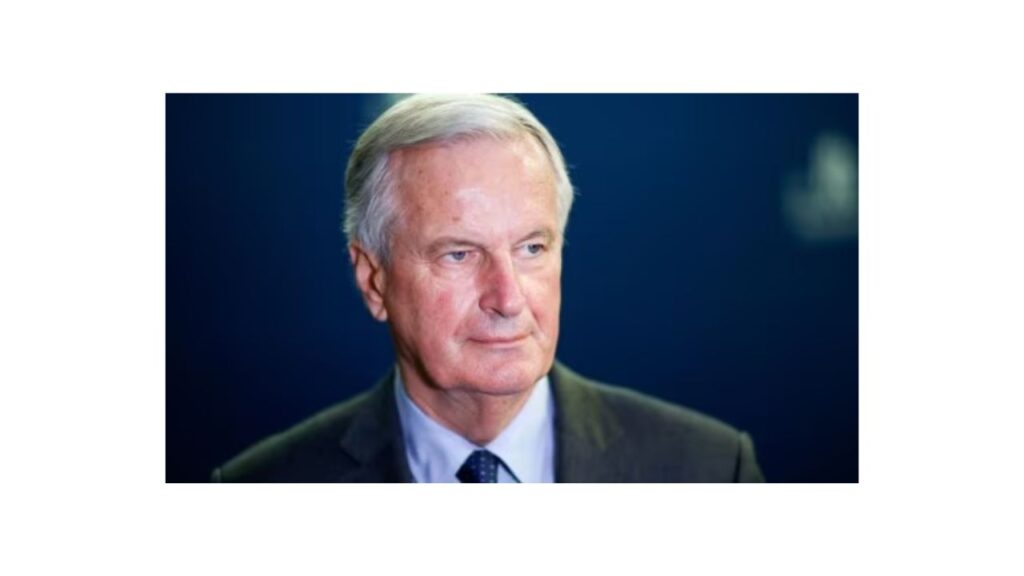PARIS: In an attempt to put an end to the political unrest that has plagued President Emmanuel Macron’s presidency, the veteran conservative and Brexit negotiator Michel Barnier was named prime minister of France on Thursday by the president.
Out of the 26 prime ministers who have led the Fifth Republic in modern France, Barnier, at seventy-three, is the oldest. Gabriel Attal, the youngest, who was appointed only eight months ago and was 34 years old, is replaced by him.
In addition, Attal was the first openly gay prime minister of France. After Barnier’s appointment, Macron’s political opponents and the French media swiftly revealed that the new prime minister had been one of 155 lawmakers who voted against a law decriminalizing homosexuality in 1981 while he was a member of parliament.
With Barnier’s appointment, France’s more than 50-day caretaker government has come to an end, but there is no assurance that political calm will return. Barnier has the difficult task of dealing with the bitter and sharply divided hung parliament that resulted from Macron’s June call for an early legislative election.
Barnier stated that his new position would call for “lots of listening, lots of respect” during a handover ceremony with Attal.
In order to address France’s urgent problems, such as the 2025 budget, Barnier will need to assemble loose, ad hoc coalitions of supporters inside the National Assembly in the absence of his own legislative majority. In an attempt to find a leader of the government who could endure in the shattered political environment, Macron and his advisors spent weeks making phone calls, trying to reach an agreement, and getting to know possible candidates for prime minister.
Barnier is a professional politician who is proud of his modest beginnings in the Haute-Savoie region of France. He is accustomed to taking on challenging and complicated tasks: In the challenging negotiations with Britain regarding its exit from the European Union, he served as the chief negotiator for the EU.
However, he may soon have to deal with potential attempts in parliament to overthrow the new government he will form and head. Left-leaning French political opponents of Macron quickly depicted Barnier’s appointment as a betrayal of those who supported them in the legislative election. Macron was hoping that more clarity and support for his position would come from the vote. Rather, the July 7 results left his centrist government without a majority but without a clear victor.
Macron is trying to break the impasse in politics by going to Barnier.
Barnier’s appointment was announced by Macron’s office with the statement that Barnier’s job was to “form a unifying government to serve the country and the French people.”
“The president fulfilled his constitutional duty by ensuring that the prime minister and the future government would meet the conditions to be as stable as possible and give themselves the chance of uniting as broadly as possible,” the statement read. “This appointment comes after an unprecedented cycle of consultations.”
With a legislature this divided, forming a government that isn’t quickly overthrown by a parliamentary censure vote will undoubtedly be a tightrope act. Barnier may consider offering potential allies ministerial posts in order to garner the support his government will require.
A political analyst at the University of Caen Normandie named Christophe Boutin predicted that “he will seek to build a government of national union, casting a wide net.”
However, Boutin went on, Barnier will also have to make do “without the extremes,” alluding to Macron’s most ardent opponents in French politics, the far-left and far-right, who wield significant influence but lack a majority in the legislature.
Barnier’s over 50-year political career has given him a wealth of experience and networks of contacts. In addition to holding positions as minister of agriculture, the environment, and European affairs, he has twice held the position of European commissioner.
However, his public persona may also expose Macron to criticism from those who claim the president isn’t bringing about the significant transformation that some voters had hoped the legislative elections would bring about.
“It doesn’t seem like a big revolution, taking all this time to get to Barnier,” Boutin remarked. “Barnier has been involved in politics for a very long time.”
After the prime minister resigned on July 16 following the legislative defeat, Macron had kept Attal and his ministers on in a caretaker role, handling day-to-day affairs, so political instability wouldn’t overshadow France’s global spotlight during the July 26–Aug. 11 Paris Olympics.
Jean-Luc Melenchon, a well-known far-left leader, publicly opposed Barnier’s appointment on Thursday and said the prime minister would not receive the support of most lawmakers.
Melenchon claimed that the appointment went against the election results, which divided the lower house of parliament between three major blocs: the far right, which centered around anti-immigration leader Marine Le Pen, the center, which included Melenchon’s party, and the left, which included Macron.
Melenchon declared, “The election has been stolen.”
Le Pen, however, stated that her National Rally party will not participate in Barnier’s government, even though she is willing to give him a chance.
Budget for 2025 will be a top priority, she declared. The government of Barnier has a short window of time to produce one. The EU is also putting pressure on France to straighten out its finances after Brussels chastised Paris for accruing undue debt.
“A man respectful of other political forces,” is Barnier, according to Le Pen. “Considering the state of France’s budget, compromises will need to be made, which makes it important.”
